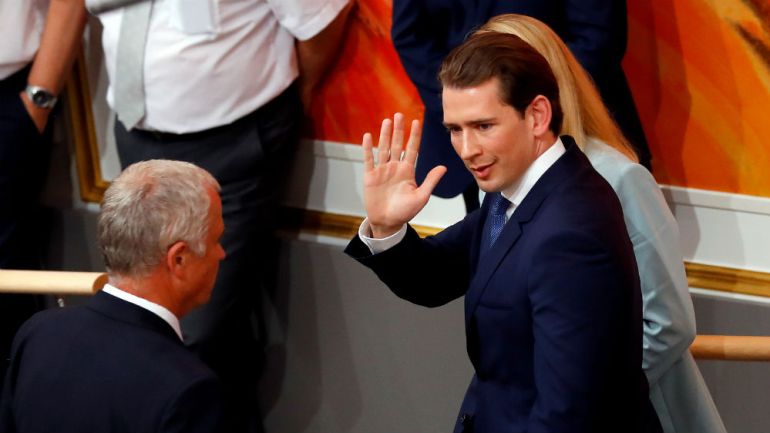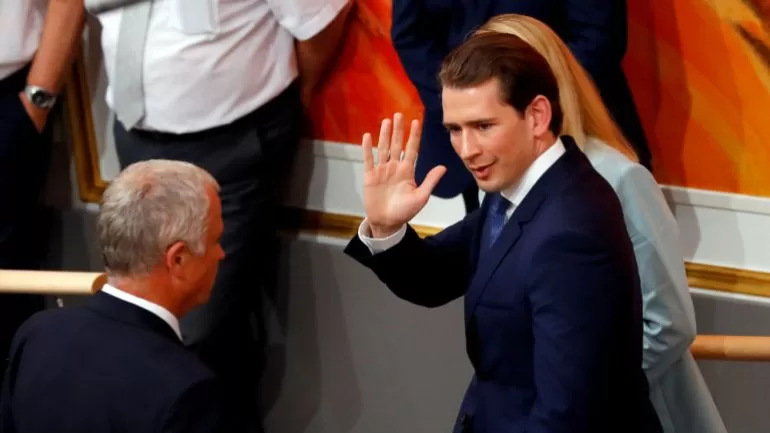Kurz receives eight month suspended sentence after being found guilty of lying to a parliamentary inquiry.
The former leader, once hailed as a “wunderkind” of Europe’s conservatives, had denied downplaying his influence over the appointment of executives to the state-holding company OBAG when he was chancellor, and whose appointments were formally his finance minister’s responsibility.
But Kurz’s corruption case centred on his testimony to a parliamentary commission of inquiry that he was “involved in the sense of informed”, but did not play an active role in appointments.
The court, however, agreed with prosecutors that Kurz was actually the ultimate decision-maker, and produced evidence, including text messages and testimony from former loyalist Thomas Schmid, the first head of OBAG, who turned state witness.
“I find this part of the ruling very unfair,” Kurz said after the ruling. “We have appealed and I am very optimistic that we will receive a ruling in our favour in the second instance.”
The trial and other ongoing corruption investigations have damaged the reputation of the charismatic hardliner, and damaged any chance he had of a political comeback.
In 2017, Kurz became one of the youngest leaders in the world at age 31 and formed a coalition with the far-right Freedom Party (FPO).
Amid a scandal in 2019 when the FPO’s leader was embroiled in a video sting, the coalition collapsed. Kurz then won a snap election and formed a coalition with the Greens, who later forced him from office in 2021 due to the corruption investigation.
But his Austrian People’s Party continues to lead the government under current Chancellor Karl Nehammer.

Kurz has insisted he is innocent of having misled a parliamentary inquiry probing wide-ranging corruption scandals that brought down his first government with the far right in 2019.
Throughout the trial, he portrayed himself as the victim of selective prosecution and an opposition out to “destroy him”.
Kurz said that while he had been informed about Schmid’s appointment, he did not decide on it and dismissed suggestions that he had sought to control everything.
On the other hand, Schmid testified that Kurz had built up a “system” where he held the reins and could veto any appointment of personnel in critical companies.
Separately, prosecutors are still investigating Kurz on suspicion of having embezzled public money to fund polls skewed to boost his image and pay for the favourable coverage that allowed for his success in 2017.
However, they have so far failed to obtain any convictions since a video emerged in 2019 showing Kurz’s then-vice chancellor of the FPO offering public contracts to a purported Russian investor for campaign help.
After leaving politics, the conservatives, who are in an election year, have slid to second or third in the polls, making it likely that they will lose seats in a parliamentary election this year, prompting speculation that Kurz could eventually return to lead the party and reverse its fortunes.
Polls, however, have shown that a clear majority of Austrians say they do not want to see his return to government, and Kurz has said that he is happy as a businessman and is now involved with numerous private international enterprises.
